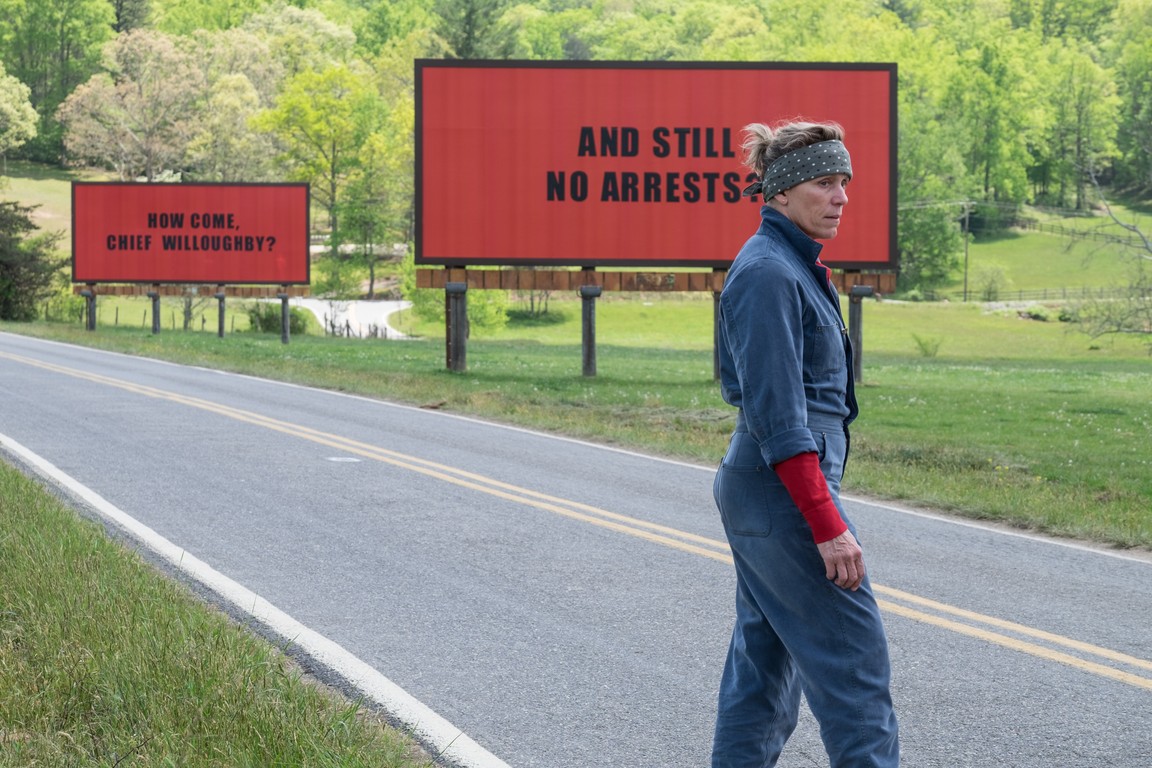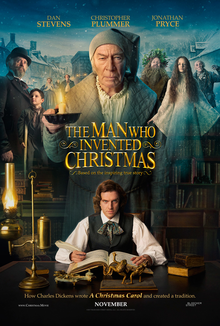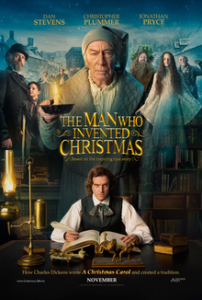Darkest Hour
Posted on December 7, 2017 at 5:48 pm
A-| Lowest Recommended Age: | High School |
| MPAA Rating: | Rated PG-13 for some thematic material |
| Profanity: | Some strong language |
| Alcohol/ Drugs: | Drinking, smoking |
| Violence/ Scariness: | Wartime violence |
| Diversity Issues: | None |
| Date Released to Theaters: | December 8, 2017 |
| Date Released to DVD: | February 26, 2018 |
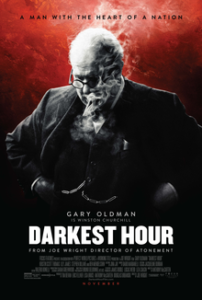
A bitter debate is going on in Parliament. The Prime Minister, Neville Chamberlain (Ronald Pickup) has responded to Hitler’s invasion of other countries with appeasement and many of the politicians are with him. A combination of denial and sun-never-sets-on-the-British-Empire smugness of those who have colonized a quarter of the planet and are situated on the other side of the Channel makes them confident that they can work with Hitler. But it is increasingly clear to at least some of the politicians believe it is time to take a stronger stand. Is there someone they can call on to lead them in that direction?
There is, and he is still in bed, “insuring his fingerprints are not on the murder weapon.” He is Winston Churchill (Gary Oldman, disappearing into the character and giving a dazzling performance worthy of the real-life man he portrays). The very inevitability of Churchill’s selection, no one’s first choice, a man who “has a knack for drawing out the very worst in those who are trying to help him,” according to his devoted but perceptive wife Clementine (Kristin Scott Thomas), increases the frustration of the elected officials around him, who continue to plot to undermine his determination to to go to war, if necessary, to fight Hitler’s takeover of Europe. “I’m getting the job only because the ship is sinking,” he says glumly but grimly. “It’s not a compliment. It’s revenge.”
Earlier this year, Christopher Nolan’s “Dunkirk” gave us a bracing look at the turning point that ends this film, when certain catastrophic defeat was turned into a victory just by escaping, rescued with the help of a citizens’ armada of boats. That film paid tribute to the ordinary men who retreated to come back stronger. This film gives us another side of the story in a more traditional “great man” portrayal of history and it could not have a better subject. Churchill was a master of language, grandiloquent at a time when people needed to be inspired by a leader of vision, a deep knowledge of history, and shining integrity. The benefit of having a central character in Churchill is that he pretty much spoke in movie dialogue, hyper-articulate, wryly witty, and with an underlying patriotism rooted in compassion, not jingoism.
Churchill knows that it is not enough for him to be right about Hitler. He has to get the support of the other politicians and he has to get the support of the population. He knows what he will be asking them to do will involve unimaginable sacrifice. And there is no time. “We are looking at the collapse of Western Europe in the next few days,” says a general. “Should the public be told?” There is no time. And, as yet, there is no plan for a counter-attack and Franklin Roosevelt, Churchill’s good friend in the United States, tells him that Congress has prevented him from being of help.
Churchill also knows what it is to fail, publicly and miserably. Will he make mistakes again? Clementine assures him that he is wise because he has doubts. Even if Hitler wins, Churchill knows it is better to give him as much of a fight as possible. “Countries that go down fighting come back.”
The compressed time period and the urgent conversations with Clementine, member of Parliament, and the king (superbly played by Ben Mendelsohn) are riveting, bolstered by an urgent score by
Dario Marianelli and masterfully sinuous camerawork by Bruno Delbonnel and editing by Valerio Bonelli. The camera maneuvers through Churchill’s legendary wartime cabinet rooms (a must-visit for London tourists), showing us the cramped quarters and the fierce energy of what is going on.
Oldman disappears into the role, a performance like the famous Karsh portrait come to life. His Churchill is crafty, sometimes impatient, sometimes uncertain, but compassionate, and always sure of what his values are. The Churchills had a famously devoted love match, and Kristin Scott Thomas is impeccable in showing us Clementine’s elegance, and resolve.
“He mobilized the English language and sent it into battle,” a character says. And with this film, director Joe Wright mobilized the language of film and presents us with an uplifting reminder of what the right person at the right time can do even under the direst circumstances.
Parents should know that this is a wartime story with tense peril and reference to violence and loss, some strong language, and smoking and drinking.
Family discussion: What should be factors in deciding when to intervene and when to negotiate? Why did the king change his mind? Read My Early Life, Churchill’s autobiography of his youth. Which self will you be today?
If you like this, try: “The King’s Speech,” “Dunkirk,” and some of the other movies about this towering figure of the 20th century, including the “First Churchills” miniseries about his ancestors.

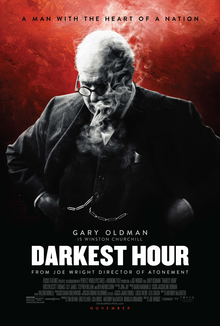
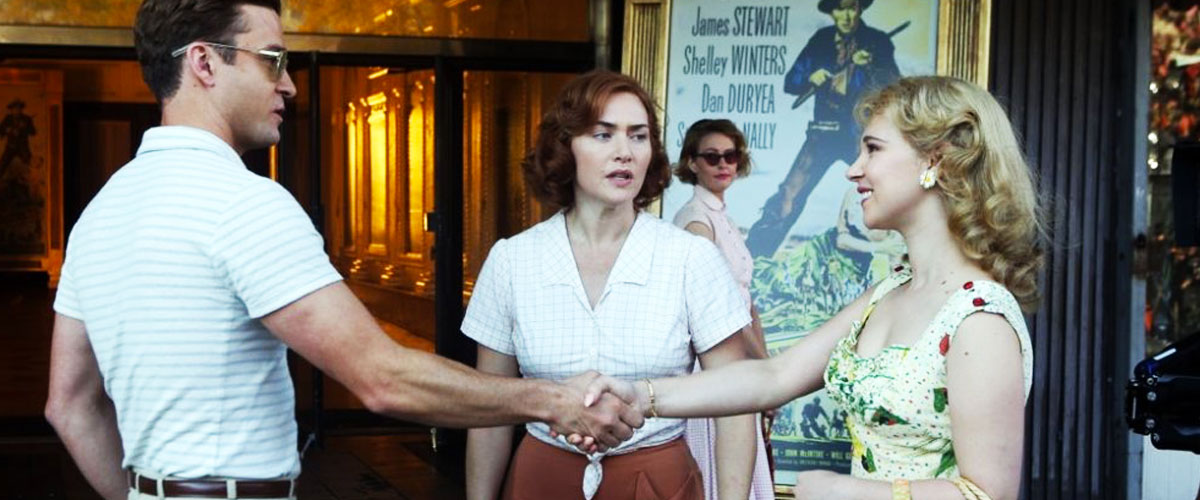
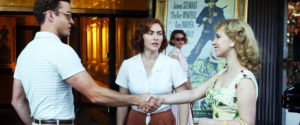
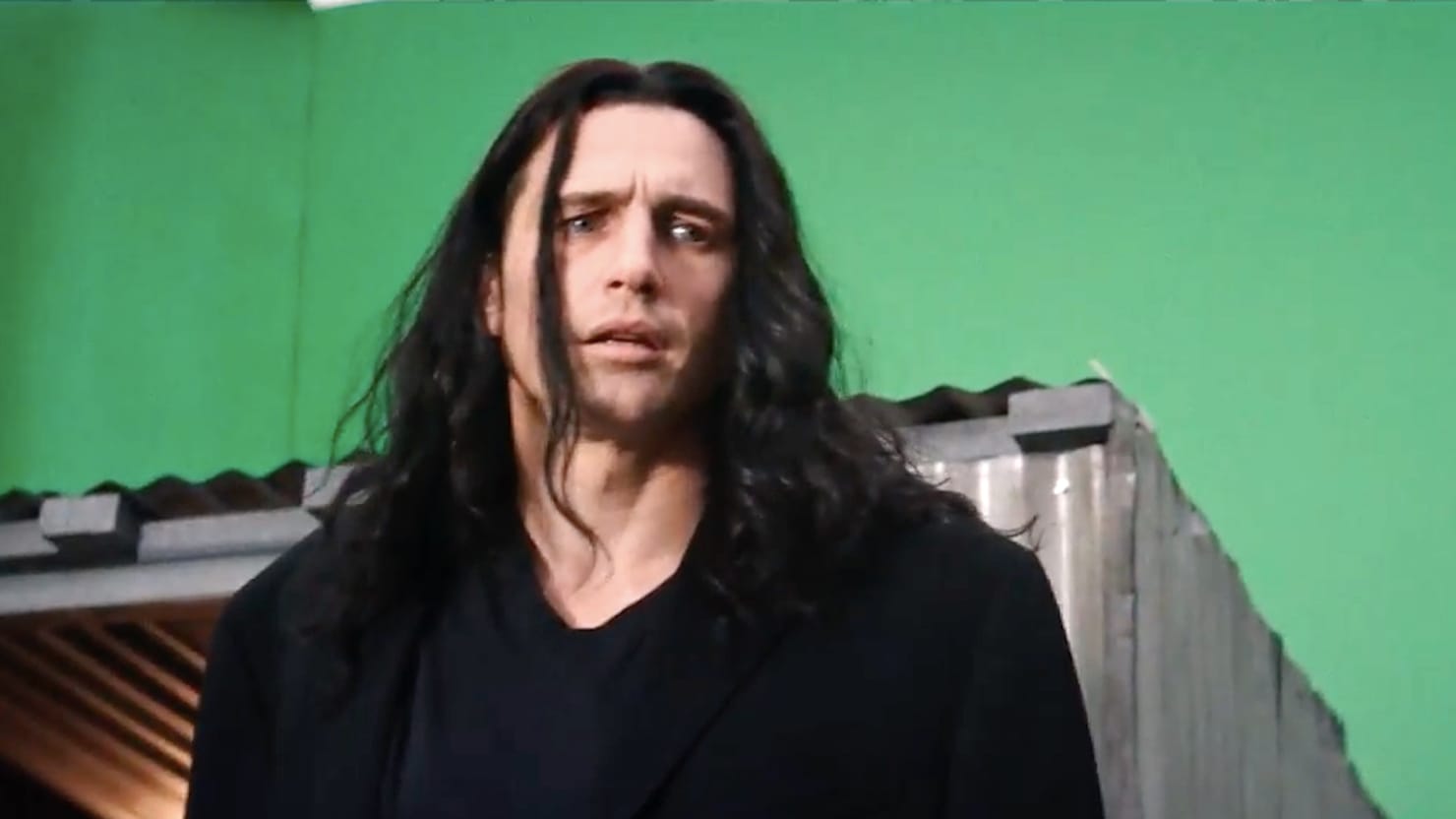
 Let’s face it. Failure is more fascinating than success. There are innumerable movies based on true stories about real people who overcame seemingly insurmountable obstacles with determination, vision, and talent to accomplish extraordinary achievements in sports, the arts, and shaping public policy. Movies like “Schindler’s List” and “The Big Short” help us to understand huge, complicated tragic failures through the prism of small victories. But there are also movies like “Florence Foster Jenkins,” with Meryl Streep as the legendarily awful singer and “Ed Wood,” with Johnny Depp as the legendarily awful movie director, that explore with some affection the stories of terrible failures, and they do it with vastly more skill than the people they depict could have imagined.
Let’s face it. Failure is more fascinating than success. There are innumerable movies based on true stories about real people who overcame seemingly insurmountable obstacles with determination, vision, and talent to accomplish extraordinary achievements in sports, the arts, and shaping public policy. Movies like “Schindler’s List” and “The Big Short” help us to understand huge, complicated tragic failures through the prism of small victories. But there are also movies like “Florence Foster Jenkins,” with Meryl Streep as the legendarily awful singer and “Ed Wood,” with Johnny Depp as the legendarily awful movie director, that explore with some affection the stories of terrible failures, and they do it with vastly more skill than the people they depict could have imagined.